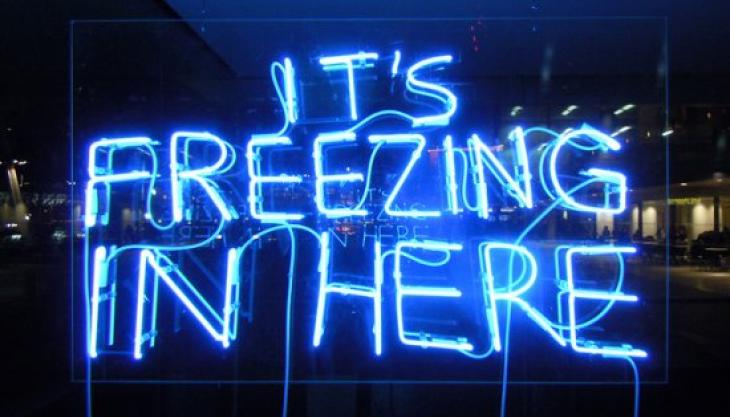What Happens If Your Bank Account Is Frozen and How Bankruptcy Can Help
Submitted by Rachel R on Tue, 12/23/2014 - 11:06am

What to do if your bank account was frozen
Image source: Flickr user Kevan
In North Carolina, most creditors are blocked from being able to garnish your wages, but this doesn't mean they can't get to your money using other means. If a creditor has sued you over an unpaid debt and obtained a judgment in court, they can use this to try and attack your assets and this can include your bank accounts. What happens if your bank account has been frozen or money has been seized by a creditor? And can bankruptcy help you get your account unfrozen or any money that was taken back? It's likely it can help. Here's what you need to know.
Fight the judgment before it goes through
When you receive a notice to appear for a lawsuit, you should never ignore it. Even if you don't have the money to pay the creditor that's suing you, you should go and throw yourself on the mercy of the court or try to make last-ditch payment arrangements with the creditor. Not going to court doesn't help you. You may also be sent a Notice of Right to Have Exemptions Designated. This is a form that lets you protect a certain dollar amount of assets including bank accounts. If you don't respond to these court notices, your assets – including your bank account – become fair game.
What to do if a bank levy has already been issued
If you didn't show up into court and haven't opened legal notices you get in the mail, you may be taken by surprise by a bank levy. A bank levy occurs when a creditor is given access to take funds from your bank account. To protect yourself from a bank levy, there are a couple of things you can do. Although North Carolina doesn't allow creditors to garnish wages, allowing them to access your bank account is almost as good since that's where your wages likely end up. You can avoid a bank levy by closing your bank account before it hits but a better strategy is to consider a permanent solution like bankruptcy.
How bank levies affect joint bank accounts
Bank levies don't distinguish between your money and your spouse's money when they drain your bank account. One sure way to protect your spouse is to remove yourself from the bank account. Better yet, close the joint account and have your spouse open an individual account without you. If you get the chance, you can list this account to be exempted, but if you don't file the designation exemption form or don't file it in time, closing the account should offer more protection.
How bankruptcy helps with levies
Bankruptcy can be a much more permanent and safe way to deal with a levy. Chapter 7 bankruptcy can discharge the underlying debt which should end the levy. Bankruptcy may not be the best choice if this judgment is your only debt. But usually when it gets to this stage, most clients that come to see us about judgments and levies also have a significant pile of other debts built up as well. If you're drowning in credit card debt, have medical bills you can't pay and are living paycheck to paycheck, bankruptcy may be a good solution for you.
If you get notice of a creditor lawsuit and have lots of other financial problems, contact the law offices of John T Orcutt for a free consultation to find out how bankruptcy can help you avoid or get out from under a bank levy.
Debts Hurt! Got debt? Need help? Get started below!
Serving All of North Carolina
- Bankruptcy Attorneys Raleigh NC (North)
- Bankruptcy Attorney Fayetteville NC
- Bankruptcy Attorney Durham NC
- Bankruptcy Attorneys Wilson NC
- Bankruptcy Attorneys Greensboro NC
- Bankruptcy Attorneys Southport NC
- Bankruptcy Attorneys Wilmington NC
Bankruptcy Attorneys Raleigh NC (North)
6616 Six Forks Rd #203 Raleigh, NC 27615 North Carolina
Tel: (919) 847-9750

Bankruptcy Attorney Fayetteville NC
2711 Breezewood Ave Fayetteville, NC 28303 North Carolina
Tel: (910) 323-2972

Bankruptcy Attorney Durham NC
1738 Hillandale Rd Suite D Durham, NC 27705 North Carolina
Tel: (919) 286-1695


Bankruptcy Attorneys Greensboro NC
2100 W Cornwallis Dr. STE O Greensboro, NC 27408 North Carolina
Tel: (336) 542-5993

Bankruptcy Attorneys Southport NC
116 N Howe St. Suite A Southport, NC 28461 North Carolina
Tel: (910) 218-8682

Bankruptcy Attorneys Wilmington NC
116 N. Howe Street, Suite A Southport, NC 28461 North Carolina
Tel: (910) 447-2987
